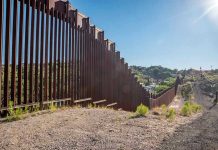
A member of Congress was reportedly assaulted by a gang of youths in D.C., intensifying debates over crime policy.
Story Snapshot
- Rep. Julie Fedorchak claims assault by gang of youths in D.C.
- Incident sparks scrutiny of youth violence and crime policies.
- Calls for federal intervention in D.C. governance intensify.
- Debate highlights tensions over local and federal control.
Incident and Political Implications
Rep. Julie Fedorchak, R-N.D., recently reported being assaulted by a group of youths in Washington, D.C., an incident that has brought renewed focus on the city’s crime policies. This occurred shortly before a major political event featuring President Donald Trump. Fedorchak’s experience has amplified calls for federal oversight in the nation’s capital amid growing concerns over crime and public safety.
Fedorchak’s public condemnation of the incident, describing it as “out of control,” has been widely covered. Her statements underscore a broader political movement among Republicans to challenge D.C.’s handling of crime, particularly involving youth offenders. This aligns with ongoing critiques of local governance and calls for tougher laws and potential federal intervention.
Background on Crime in Washington, D.C.
Washington, D.C. has long grappled with crime rates, especially those involving youth offenders. The city’s policies, including reforms aimed at juveniles, have been contentious between local and federal officials. Recent increases in violent incidents, such as assaults and robberies involving youth, have intensified the focus on D.C.’s crime management and have become a focal point for political debate.
Against this backdrop, the incident involving Fedorchak serves as a catalyst for discussions on public safety and youth justice reforms. The city’s unique status as the nation’s capital often places local issues under a national spotlight, further complicating the interplay between local autonomy and federal oversight.
Potential Impact and Future Developments
The incident could have significant short-term and long-term implications. Politically, it increases pressure on D.C. officials and heightens media attention on urban crime. There is potential for legislative action affecting D.C.’s autonomy or youth justice policies. This could also influence national debates on criminal justice reform and urban policy, setting precedents for federal intervention in local governance.
Member of Congress says she was assaulted by gang of youth before Trump DC takeoverhttps://t.co/QS5vXxK8DF
— Rick LaRhette (@rplarhette) September 3, 2025
Socially, increased fear or mistrust between residents and law enforcement could arise, while economically, perceptions of crime might impact tourism and business. The political arena is likely to see intensified debates over crime, urban policy, and the balance of federal vs. local control, with the incident serving as a pivotal point in these discussions.
Sources:
AOL News: GOP senator targets DC ‘youth offender’ law as Trump …
Congressional Research Service: Violence Against Members of Congress and Their Staff
LegiStorm: Rep. Julie Fedorchak press releases (background context)









